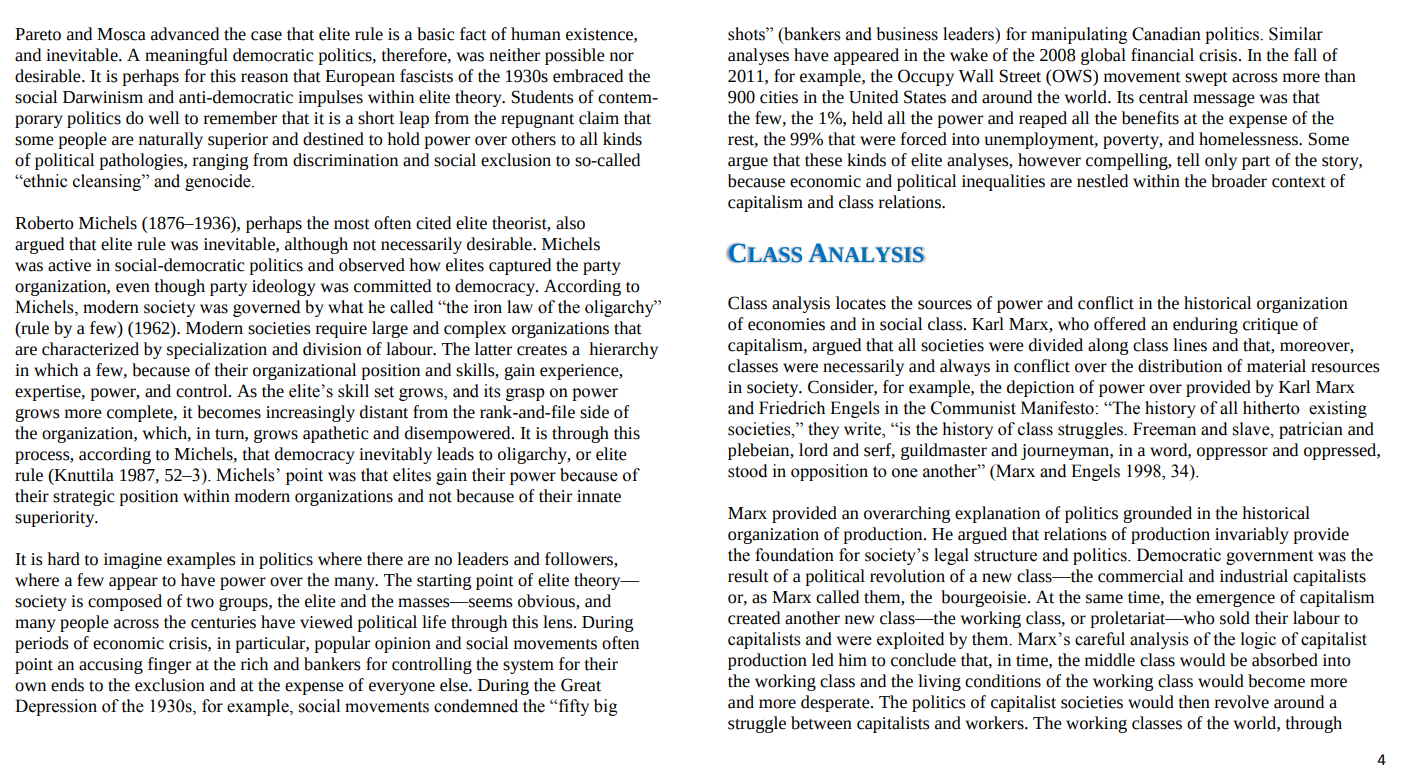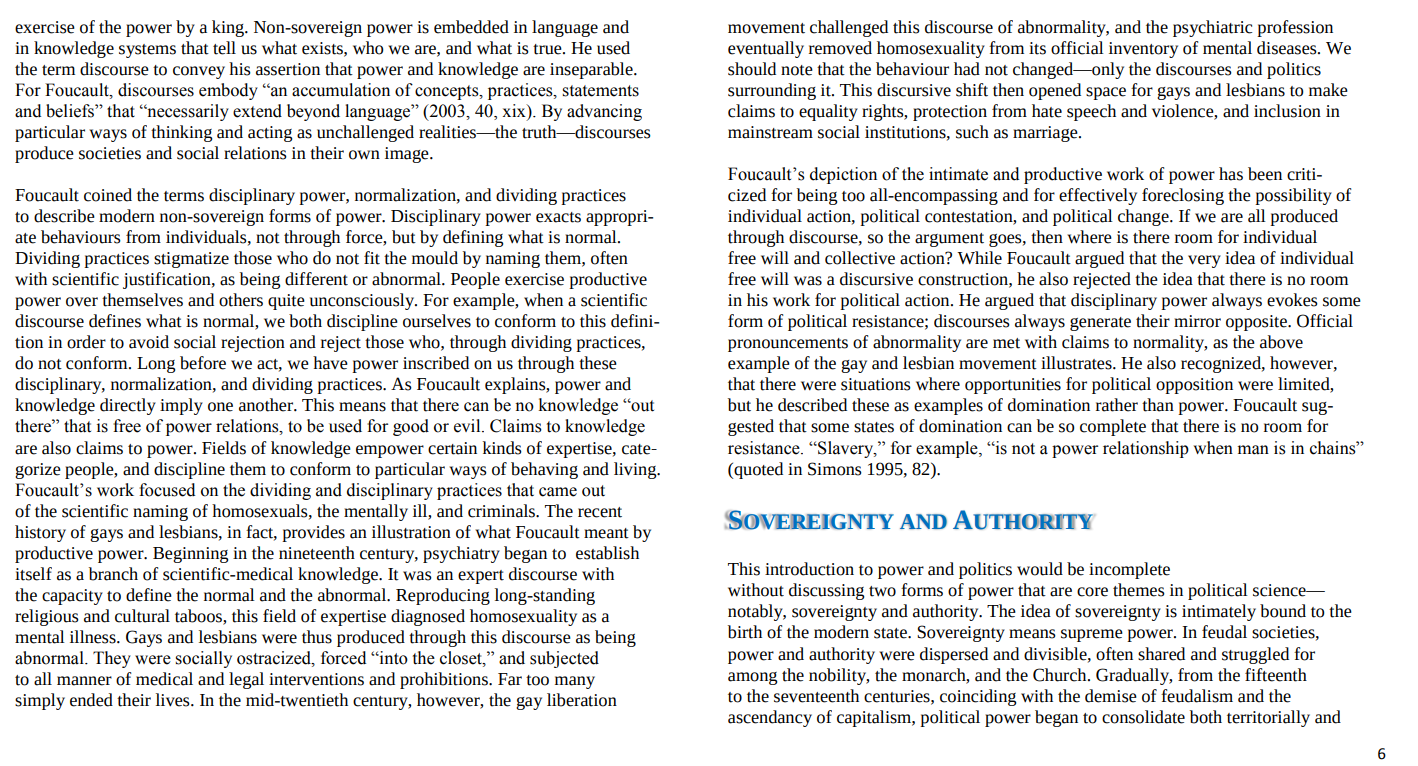This small essay by Janine Brodie called "Power and Politics" has several other issues, but their most frustrating one is their outright DISMISSAL of Marxist class analysis for the stupidest reasons. Economic determinism? I guess if you yearned to softly dismiss marx by misrepresenting him.
God I fucking hate poli sci majors.
The previous page:
Show


The next one:
Show


I'm not the brightest crayon in the box but is it just me or does Doctor Brodie somehow make politics and power some sort of vague, unsolvable mystery? Like fr I don't want just an echochamber of nodding heads plz help am I in the wrong?
I need help putting words to my issues with it.


I get what you mean. As other people in the tread have said, the relationship between a proletarian and production is wage labor. Mobility is indeed an important part of that, as well as being a nominally free individual. So it's not so much what job they are doing, or their other social relationships.
But these liminal examples do rise the concern that our definitions can be too rigid.
I thought of 2 other related points between my last post and this one. The first is about tenancy. As the marginal productivity of agricultural workers falls, the become landless, and eventually end up working the land for a fee or corvee. The same conditions that correlate with tenancy also do so with proletarisation, the difference in outcomes for different regions seems to be related to mobility, and the development of nearby urban networks.
The second was about eastern European serfs, who had become tenants, tied to the land and owed the landlord a corvee. But as agricultural productivity fell with respect to labor productivity on urban areas, landlords decided it was more profitable to let the serfs work in the city and then pay them a fee. So these people belonged to 2 different contexts, on the one hand their relationship to production was that of proletarians, on the other they were also explored by the landlord who had customary rights over them.
This is another example of how definitions can become too rigid, and can't represent Al the nuances of the real world. At the same time clear definitions help us understand the difference in this case between the material and customary relationships. In this example the landlords went to the dustbin of history because they no longer had an economic base.